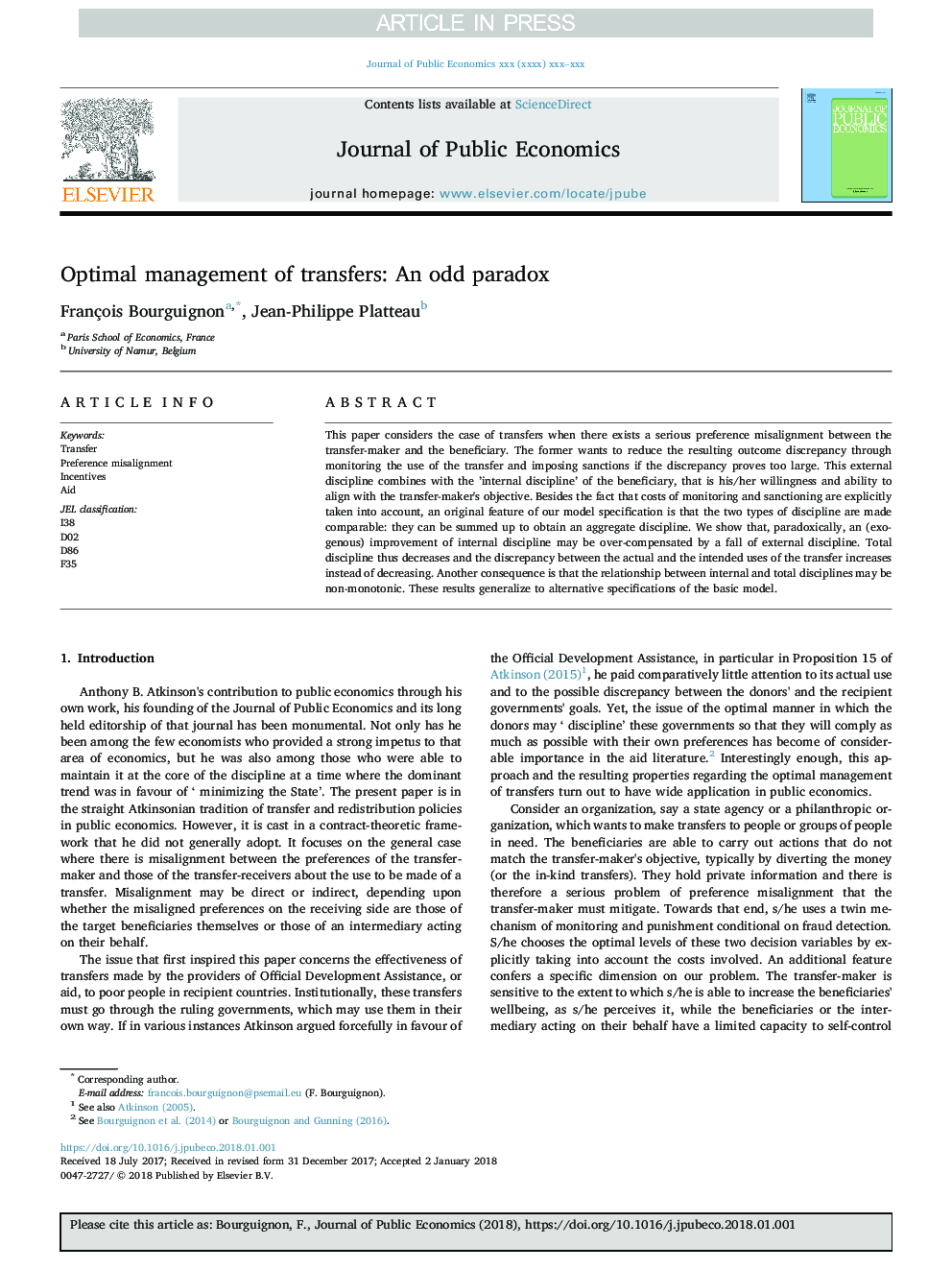| Article ID | Journal | Published Year | Pages | File Type |
|---|---|---|---|---|
| 7369444 | Journal of Public Economics | 2018 | 15 Pages |
Abstract
This paper considers the case of transfers when there exists a serious preference misalignment between the transfer-maker and the beneficiary. The former wants to reduce the resulting outcome discrepancy through monitoring the use of the transfer and imposing sanctions if the discrepancy proves too large. This external discipline combines with the 'internal discipline' of the beneficiary, that is his/her willingness and ability to align with the transfer-maker's objective. Besides the fact that costs of monitoring and sanctioning are explicitly taken into account, an original feature of our model specification is that the two types of discipline are made comparable: they can be summed up to obtain an aggregate discipline. We show that, paradoxically, an (exogenous) improvement of internal discipline may be over-compensated by a fall of external discipline. Total discipline thus decreases and the discrepancy between the actual and the intended uses of the transfer increases instead of decreasing. Another consequence is that the relationship between internal and total disciplines may be non-monotonic. These results generalize to alternative specifications of the basic model.
Related Topics
Social Sciences and Humanities
Economics, Econometrics and Finance
Economics and Econometrics
Authors
François Bourguignon, Jean-Philippe Platteau,
